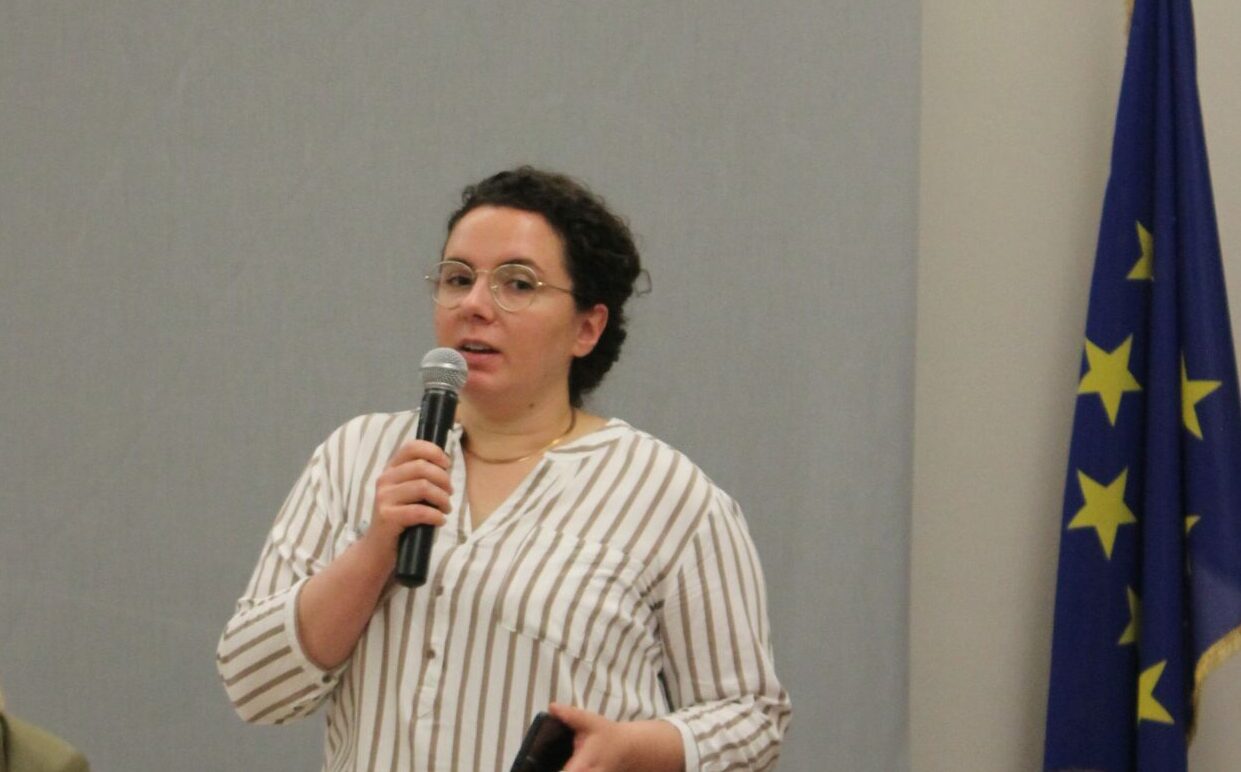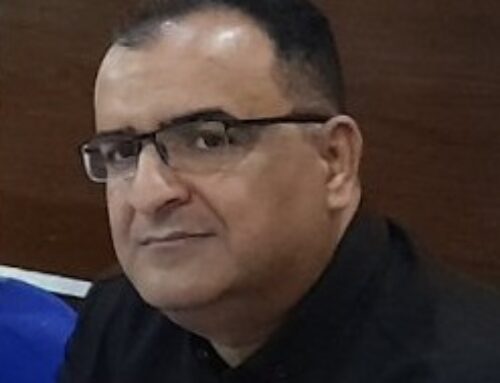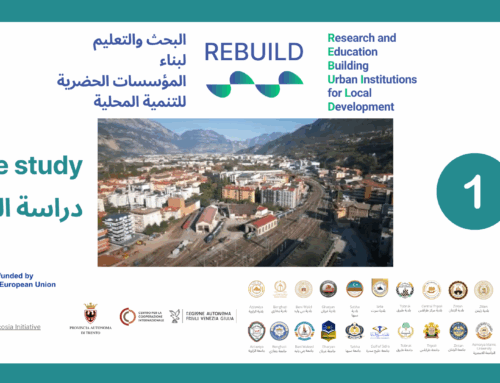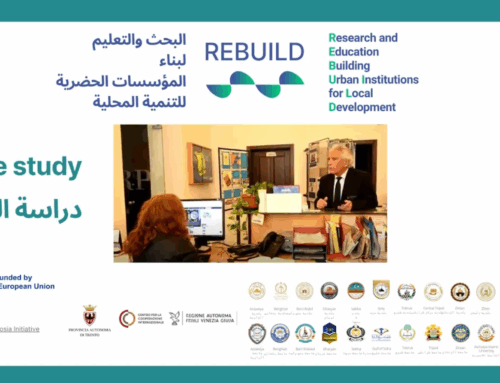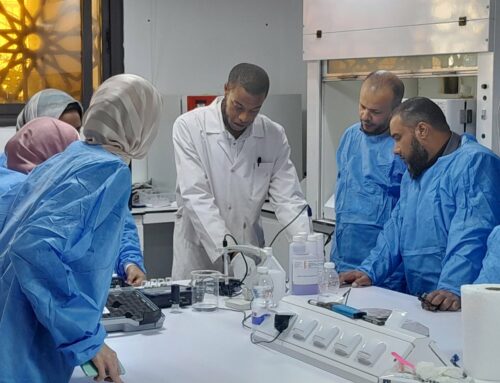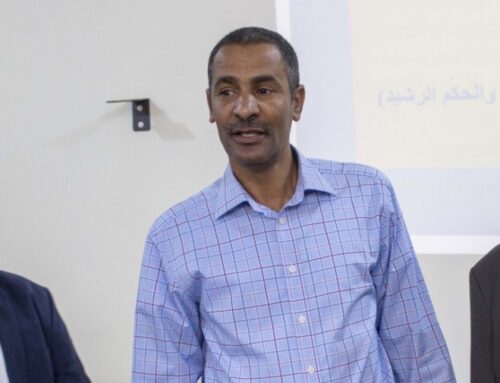Ms. Francesca Toniolo, CCI – International Cooperation Centre
Do you (still) think that monitoring and evaluation kind of mean the same thing? Is this just lofty jargon for you? If your answer is yes, then please follow me.
Imagine your city today. Then, imagine it differently and better. What do you see? Describe how and why this change that you want to see in your city will happen.
We, in REBUILD’s team, look for better living conditions for all persons living in Libya. And what does this mean? It means that everyone, especially the most vulnerable and marginalised persons, can access basic services in their Municipalities. And how does this happen? It happens when Municipalities design, implement and assess equitable, sustainable, inclusive, and resilient policies for their territories. And how do Municipalities do that? The women and men working in the Municipalities have the power to influence policies that affect the lives of their fellow citizens. Do they know how to use their own power? In Nicosia in 2015, in the midst of political turmoil and insecurity, the Mayors of Libyan Municipalities and their European counterparts joined their efforts and shared a vision: that women and men who work in their Municipalities offices could have the opportunity (through decentralisation) and capacity (through training) to make this change happen. And they decided that, to do this, they needed knowledge, capacities, they needed to be more connected in a community that shares this vision, and they needed practical, impactful interventions that change the lives of their citizens.
There you have it! We have just summarised the Theory of Change of the REBUILD project.
This is not “a change that can happen in theory”. This is the change that we really want to promote in practice. But how can we really be sure that this change is happening? What indicates that the change is there?
Monitoring means “to watch, keep track of, or check” something for a special purpose. Evaluating means “to determine the significance” of something, usually by careful appraisal and study.
Imagine being olive producers: everyday, we watch the olives grow, we keep track of every new leaf, we check the health of each tree. Then, at the end of the harvesting season, we weigh how many tons of olives we have obtained and analyse if the effort we have put in was worth it: do we have enough olive oil to sell? All in all, do we evaluate it as a good year?
The information that we choose to look at (the number of ill trees, the tons of olives harvested, the litres of olive oil obtained, etc) are the indicators that show the small, everyday changes that happen as a result of our work. They provide evidence of the progress we are making towards turning a profit.
The same goes for our project, REBUILD. Our indicators inform us about how good we are in promoting the change that we want to see.
Indicators tell us if we are using our financial resources correctly, they provide us with the information to make rational decisions, and they demonstrate that the change has, indeed, occurred. They are specific to the Libyan context and to REBUILD activities, which means that they are something that we see in our daily work and that we can influence with the choices that we make everyday. We know how to measure them; we know that, by the time we will have completed our training activities, we will be able to say that we have achieved the target that we had set at the beginning of this journey.
Think about one of the most important indicators of the REBUILD project: the number of participants to the training courses organised by Libyan universities in the Municipalities, disaggregated by gender and age, and by domain of work.
This indicator may look easy, but it is not: it really is the result of a long chain of responsibilities of various project staff working together in Libya and in Italy, with the Municipality Project Managers being at the onset of this process.
First, REBUILD Project Managers in the Municipalities – who have previously assessed the training needs among their staff – become knowledgeable about the topic of the training cycle, and they do this by studying the training materials in the e-learning platform and by discussing the topics with the University Project Officers. With this information at hand, they define the profile and assess the motivation of the participants so that only the relevant staff members who are eager to learn participate in the training.
Then, Project Managers inform the REBUILD Coordinator in Libya and the Training Team at the Centre for International Cooperation in Trento to be sure that their selection of participants is indeed appropriate. In order to do so, the Project Managers send a list that includes the basic information about the participants: name, surname, domain of work, age and gender.
During the training, all participants sign the attendance sheets, which are prepared by the Project Managers and the University Project Officers and then sent to the Project Management Unit after the training. According to their attendance, participants receive their certificate. Moreover, the participants fill in a self-assessment at the beginning and at the end of the training to measure the enhancement of their level of knowledge and skills about the cycle’s topic. After this process is concluded in all ten Municipalities, the information is received at the Centre for International Cooperation, it is logged in an Excel sheet, cleaned, and analysed. We ask ourselves questions like: are we training enough Municipality staff? Do trainees take part in the whole training or is there a high drop-out rate? If so, who is dropping out and for what reasons? Is there a good mix of characteristics among the trainees so that they represent the Municipality workforce? Are decision-makers involved in the training?
The results of these analyses are discussed by the Project Management Unit with the REBUILD Coordinator in Libya, with the Municipalities and Universities, and then, ultimately, they are presented to the Technical Board and the Steering Committee so that these two governing bodies of the project can make informed decisions about the project.
Last, but most importantly, the Media Officers can inform the project stakeholders and the citizens saying, for instance, that so far 510 women and men in ten Municipalities participated in REBUILD training and most of them feel that their competences have improved.
This lengthy process may sometimes seem pointless paperwork; but it is not. First, it has an administrative purpose, which is demonstrating that activities take place as planned. Second, it has a monitoring purpose, because it allows us to collect the needed information. Third, this process is per se a way to build the competences of all the parties involved, because it encourages having a transparent attitude and because it strengthens the collaboration among different entities, which is one of the core elements of good governance and of the dialogue between citizens and their elected representatives.
But for citizens having a full and clear picture on the training activities in the municipalities is not enough; it is only the first step in the right direction. Citizens also want to make sure the new competences are put to good use for their benefit. And therefore if these competences produce any desired change.
And this is another more complex story, where also the pilot projects come in. But let’s leave this one for another episode.

